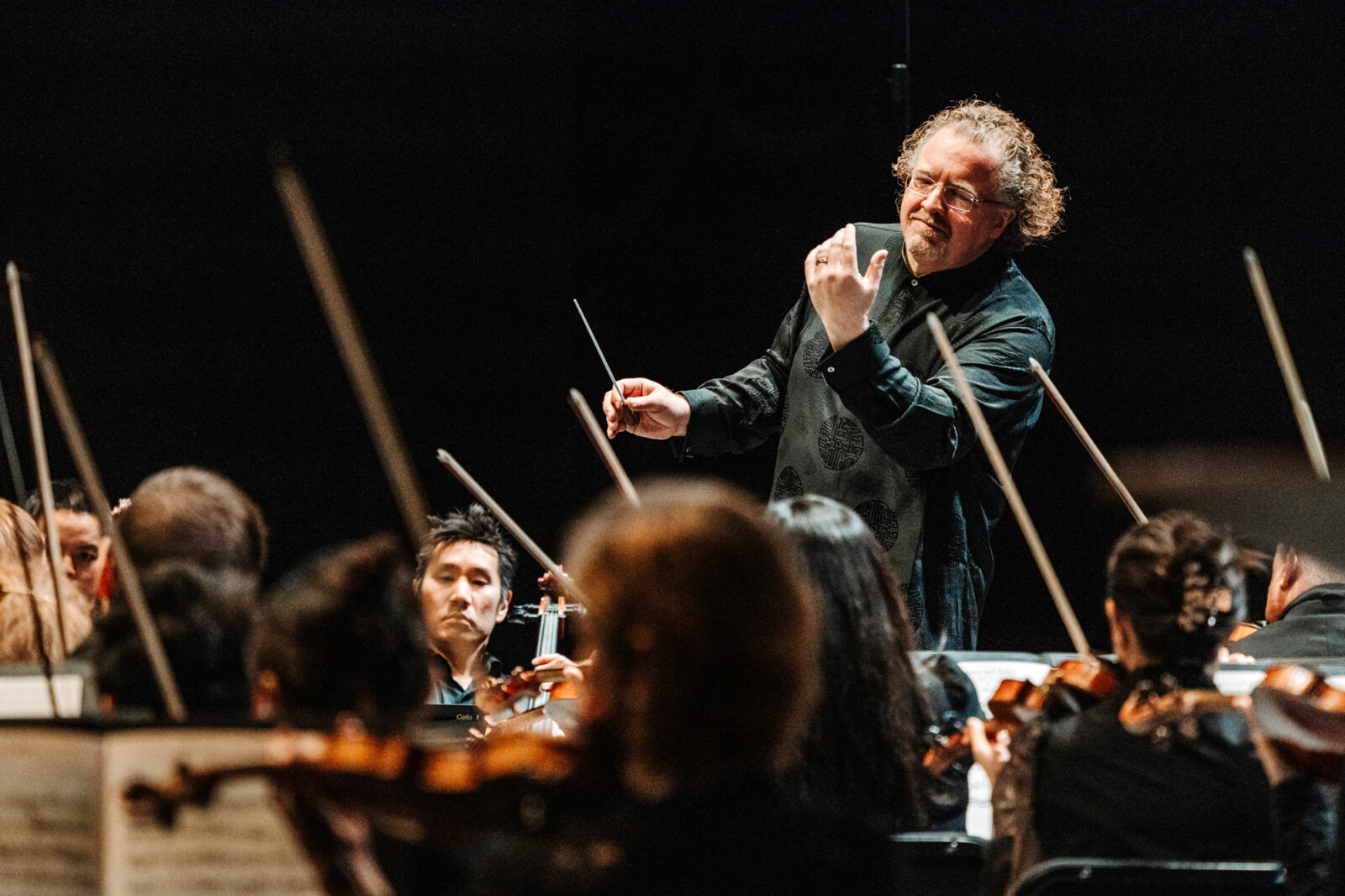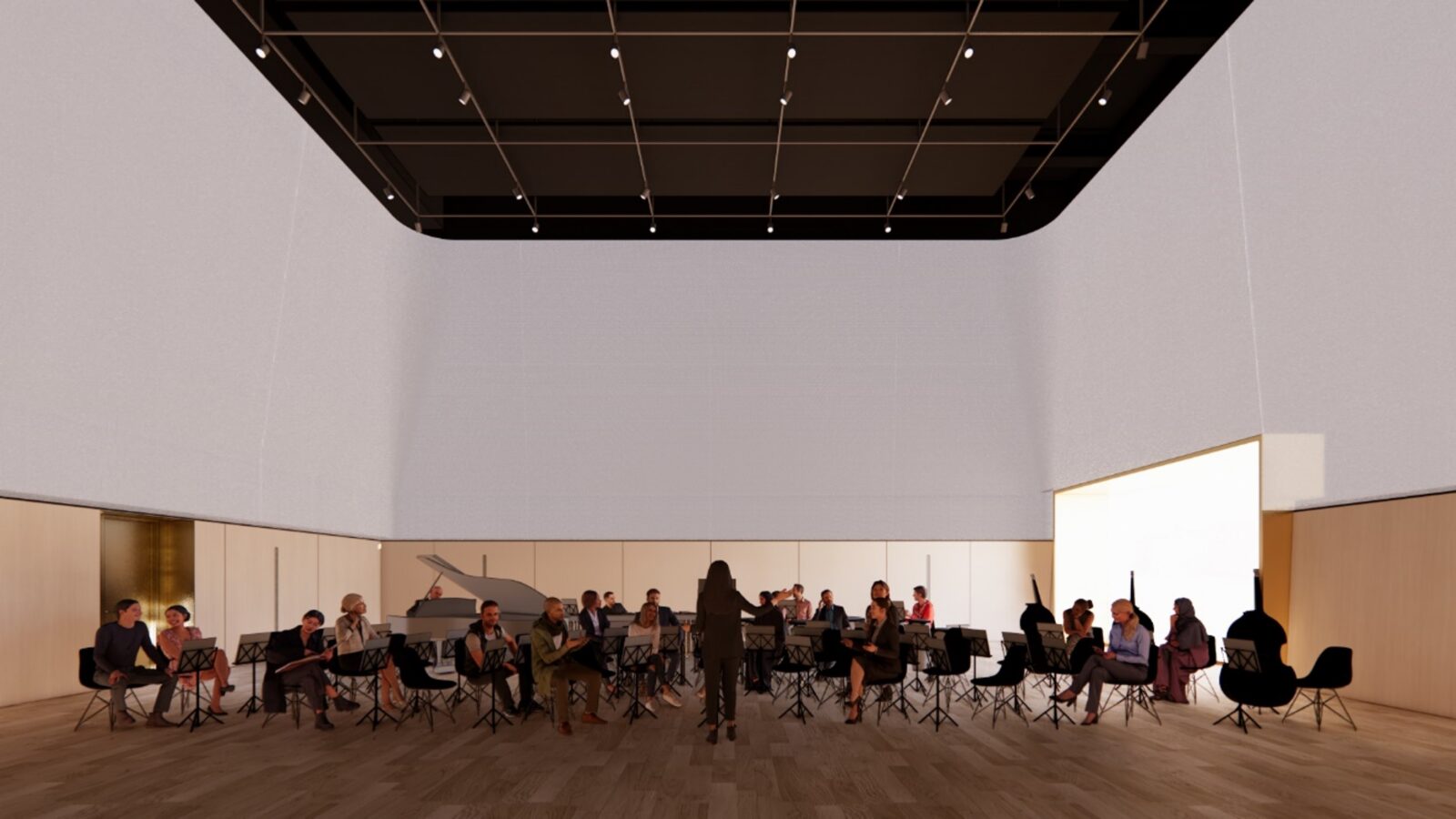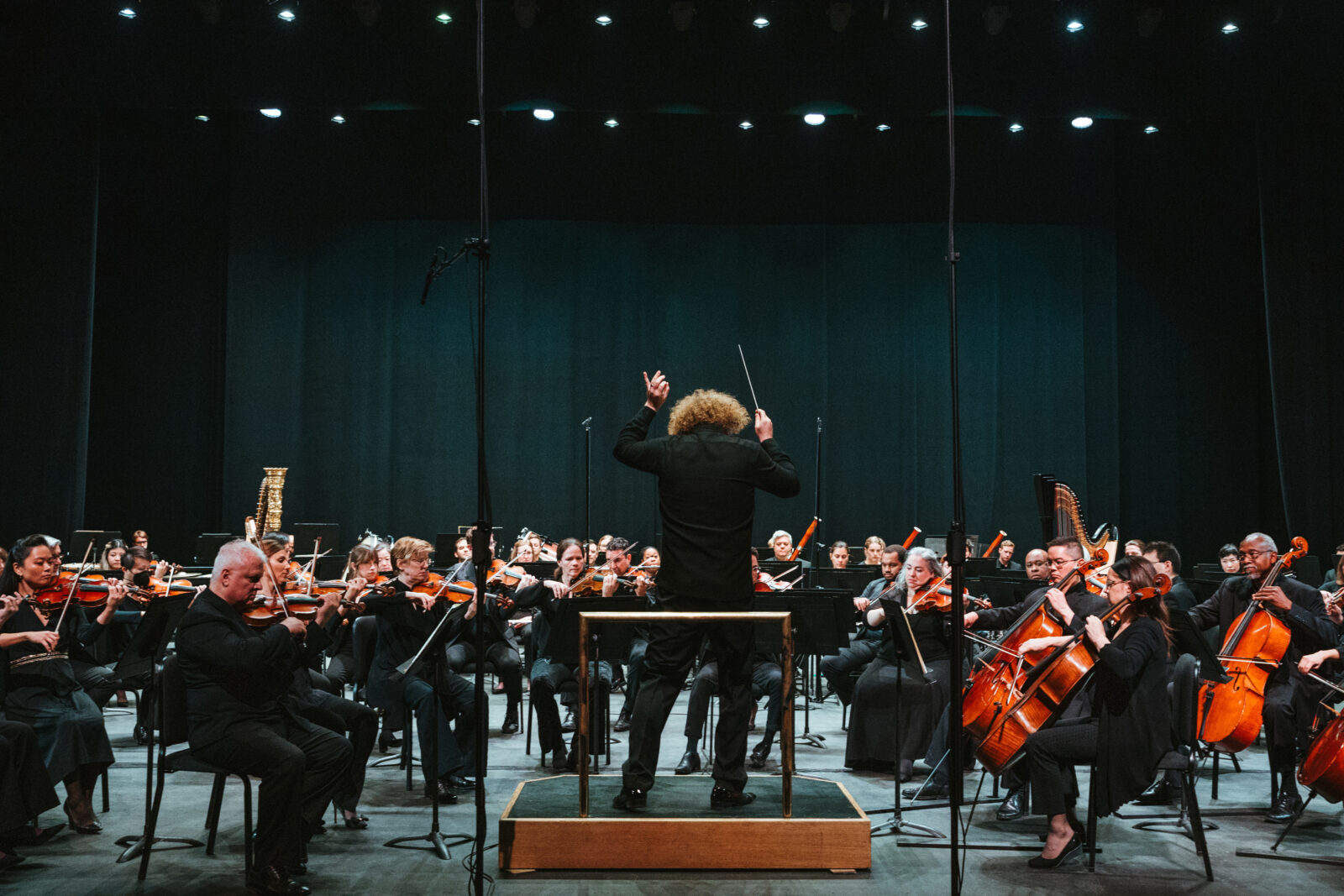ACCESS Granted: Breaking Barriers with the Power of Music
By Justino Gordón-LeChevalié
For over a century, the SLSO has championed the belief that music belongs to everyone. From the 1904 World’s Fair, where the origins of the Symphony Volunteer Association (SVA) raised funds to ensure the orchestra’s sustainability, to pioneering Young People’s concerts in the 1920s, the SLSO has an enduring commitment to the accessibility of orchestral music.
These efforts have continued to expand and evolve over the decades, most recently in the launch of SLSO ACCESS, a strategic initiative begun in 2022. As Maureen Byrne, Vice President of Education and Community Programs, notes, “ACCESS continues our legacy of accessibility by directly removing financial barriers and inviting everyone into the transformative world of symphonic music.” ACCESS was specifically designed to allow the SLSO to partner with social service organizations that serve as connectors within our community, and provide free tickets to individuals and families who might otherwise face a financial barrier to entry. This approach aims to not only strengthen the bond between the SLSO and these various communities but also to ensure that the program is intentional, equitable, and impactful.
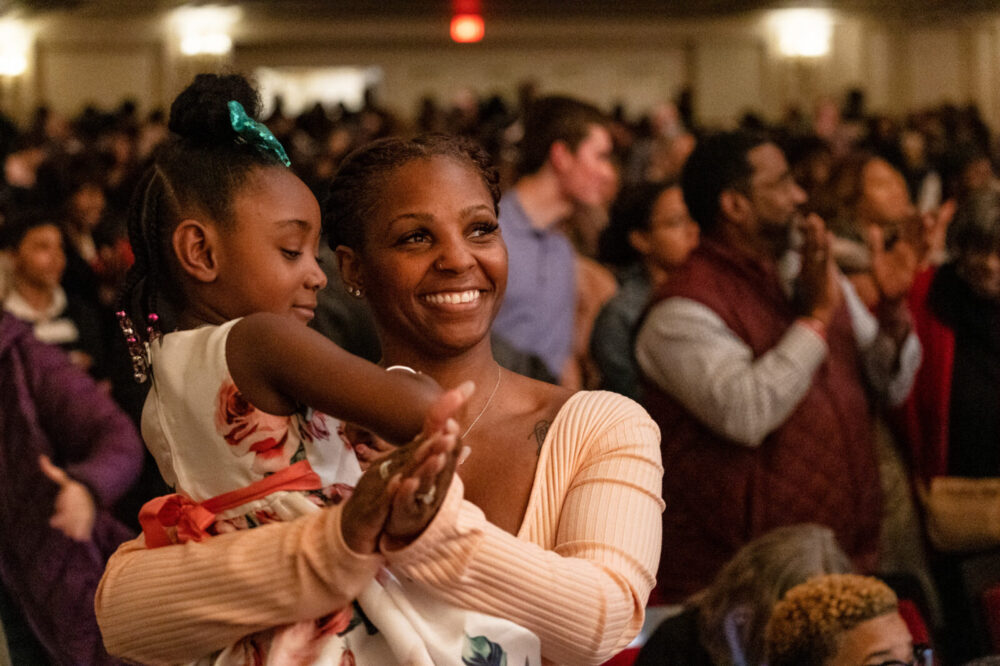
Audience members at the annual Lift Every Voice concert with the SLSO IN UNISON Chorus.
In the 2023/2024 season, the ACCESS program provided more than 3,700 complimentary tickets through more than a dozen social service organizations and partnering non-profits including Better Family Life, the 24:1 in Normandy, and Urban League Head Start. When concert opportunities were released for fall 2024, all 1,500+ tickets were claimed within three weeks.
ACCESS grew from Music Director Stéphane Denève’s deep belief that the SLSO belongs to everyone in the community and that everyone should feel they belong at SLSO concerts. “When Stéphane joined us, inclusivity and belonging were central values of his tenure, which pushed us to think beyond tradition,” Byrne recalls. These efforts started modestly with “Stéphane Seats,” offering small groups a special meet-and-greet with Denève and orchestra musicians. As the initiative grew, the SLSO recognized the immense demand for concert tickets among community members who were excluded due to financial constraints. ACCESS was born from this realization, reshaping the vision of “Stéphane Seats”—which continues to serve small groups—to align with a broader, more community-focused purpose. The decision was made to directly partner with local social service organizations, many of which have deep ties to communities who have historically felt unwelcomed or excluded from the concert hall.
The shift to full-fledged collaboration with community partners transformed the program into what it is today. As Byrne puts it, “We worked through organizations that are trusted within their communities. That trust made all the difference.” One standout feature of ACCESS is its thoughtful programming.
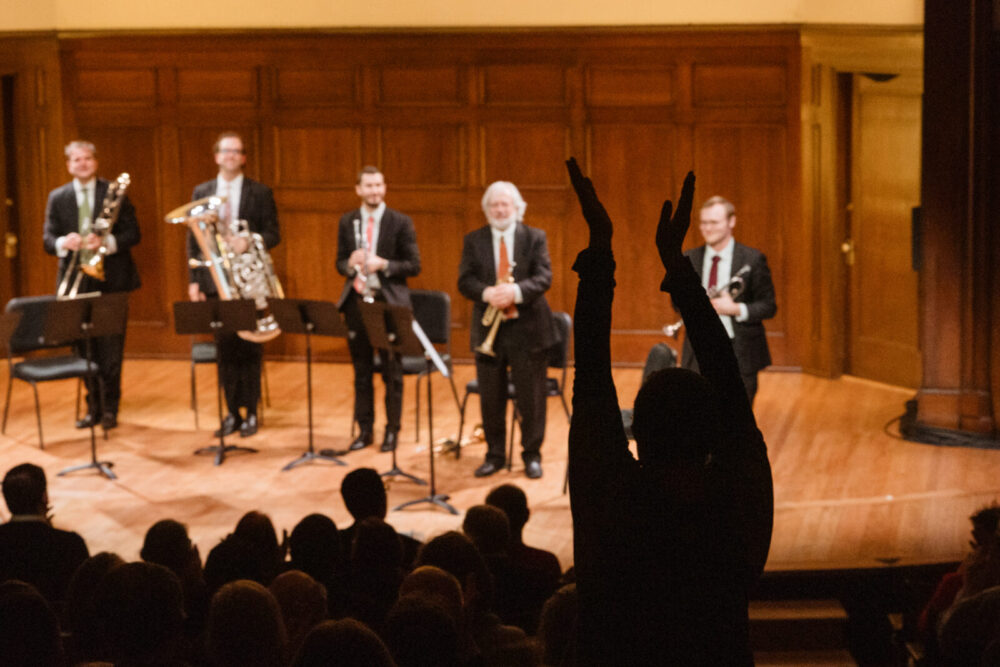
The Live at The Sheldon series offers concertgoers an evening of chamber music curated and performed by SLSO musicians.
Concerts offered through the program are chosen with intentionality to best connect with people served through partner organizations. “Many of our partners work with families so Concerts for Kids are included in our offerings,” says Byrne. Concerts featuring the IN UNISON Chorus like Lift Every Voice with guest artist Donald Lawrence, to celebrate Black History Month, are offered alongside more traditional classical programs.
The impact of ACCESS can best be understood through the stories of those it touches. One of those people, Dr. Shane Hopper, Head of School for the Grand Center Arts Academy (GCAA), shared how ACCESS has created meaningful opportunities for his students and their families. “A number of our families didn’t have the ability to attend SLSO performances because of cost,” Hopper explained. “The generosity of the ACCESS program, however, has allowed them to experience live symphonic music, which has been met with incredible enthusiasm.”
The program has also inspired deeper collaborations. Last year, members of the SLSO partnered with GCAA music students to create a unique operetta about Little Red Riding Hood. “That collaboration was a fantastic project for our students, providing a chance to work alongside professional musicians in a meaningful way,” Hopper said.
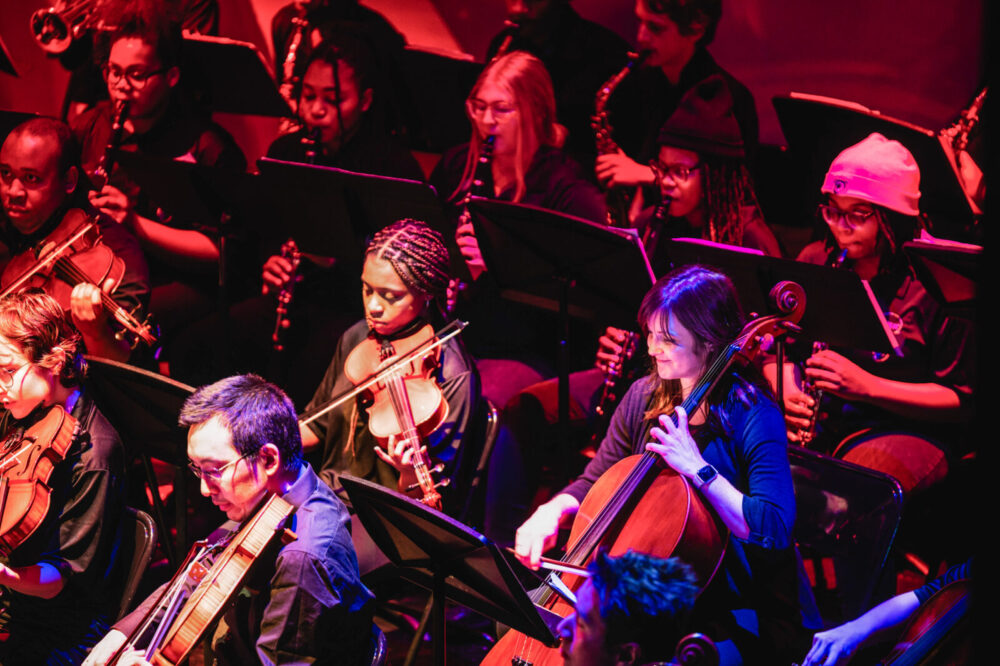
Students of Grand Center Arts Academy alongside members of the SLSO play their original operetta about Little Red Riding Hood.
Hopper also highlighted how ACCESS and these musical opportunities can shape students’ futures. “We’ve had two students get accepted to Berklee College of Music, one of whom is a current senior and has gone to see several performances through the ACCESS program. It’s amazing to think that these performances and interactions could be planting the seeds for future performers who may one day grace Powell Hall’s very stage.”
The SLSO ACCESS program has proven that music can be a form of connection. By continuing to build on a foundation of inclusion, the SLSO offers a reminder that music is boundless, and its reach is limitless. When people feel ownership of the symphony, they come back,” Byrne says, “and they bring others with them. That’s the power of music at work.”
